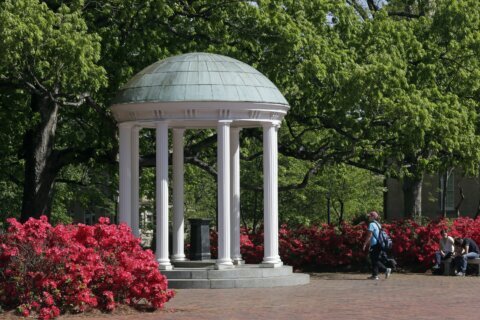SAN FRANCISCO (AP) — California State University, the nation’s largest four-year-public university, said Wednesday that it will require students, faculty and staff at its 23 campuses to get COVID-19 booster shots for the spring semester amid concerns about the highly contagious omicron variant.
The mandate, which allows for medical and religious exemptions, requires the boosters by Feb. 28, or six months after the final dose of vaccination.
Individual campuses can impose earlier deadlines, the university said in a statement, adding it was still negotiating the requirement with labor unions.
“Vaccination, including a booster when eligible, remains our most effective strategy against infection and severe disease,” CSU Chancellor Joseph I. Castro said in the statement. “This is particularly important in light of the rapid rise of cases of COVID-19 throughout the state and nation as the omicron variant spreads.”
California State University has about 485,000 students and 55,000 faculty and staff.
The announcement comes a day after the University of California announced a similar mandate for its 10 campuses, saying that a COVID-19 booster shot is required under the existing UC policy that says students and staff must keep their vaccination status up to date.
UC Chancellor Michael Drake outlined the policy in a letter to chancellors Tuesday. Several UC campuses have announced that classes will begin remotely at the start of the new term, including UCLA, UC Irvine, UC Santa Cruz and UC San Diego. The delays of in-person classes range from one to two weeks, which campuses say will allow them to conduct extensive testing and reduce the risk of spreading illness after the winter recess.
Colleges across the country are bracing for the worst when students return from winter break and many see boosters as their best hope. More than 30 colleges have issued booster shot requirements in recent weeks, and others say they’re thinking about it. The list includes large universities like Boston University, NYU, the University of Chicago, Michigan State University, the University of Oregon and dozens of smaller liberal arts and Ivy League campuses.
Much about the omicron coronavirus variant remains unknown, including whether it causes more or less severe illness. Scientists say omicron spreads even easier than other coronavirus strains, including delta. Early studies suggest the vaccinated will need a booster shot for the best chance at preventing an omicron infection but even without the extra dose, vaccination still should offer strong protection against severe illness and death.
California has so far fared far better than many other states. Gov. Gavin Newsom said Wednesday that California has the lowest test positivity rate in the country, with 3.3% of COVID-19 tests coming back positive. But cases are surging as the more-transmissible omicron variant spreads through the state. New cases have nearly doubled from 5,400 last week to nearly 11,000 this week, he said during a news conference.
Copyright © 2024 The Associated Press. All rights reserved. This material may not be published, broadcast, written or redistributed.







